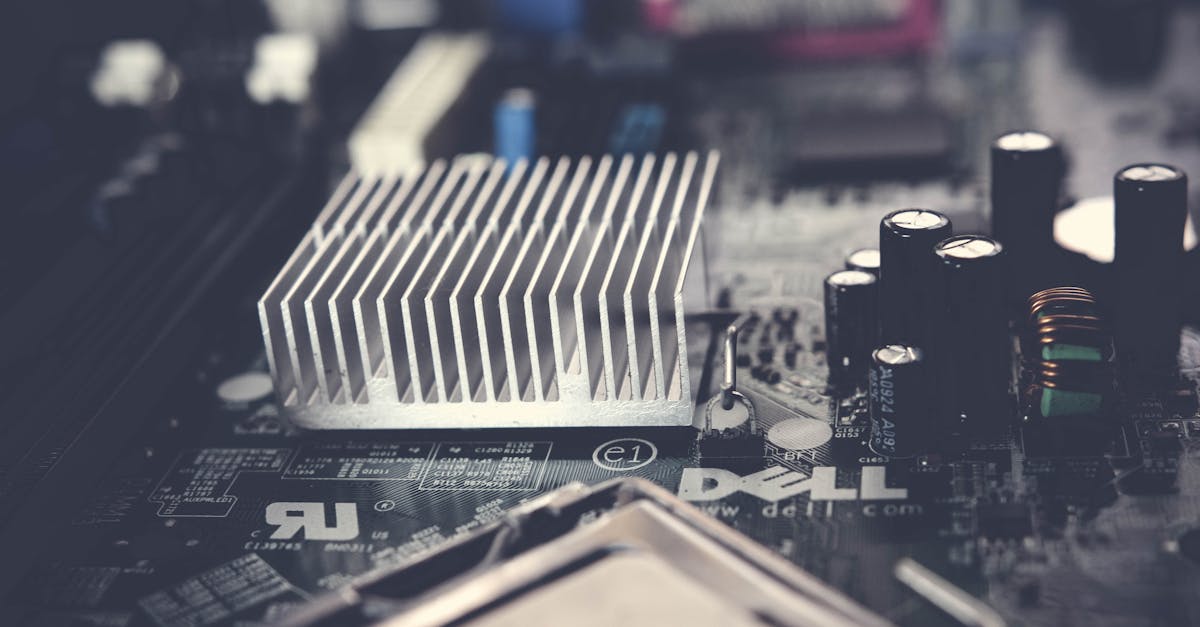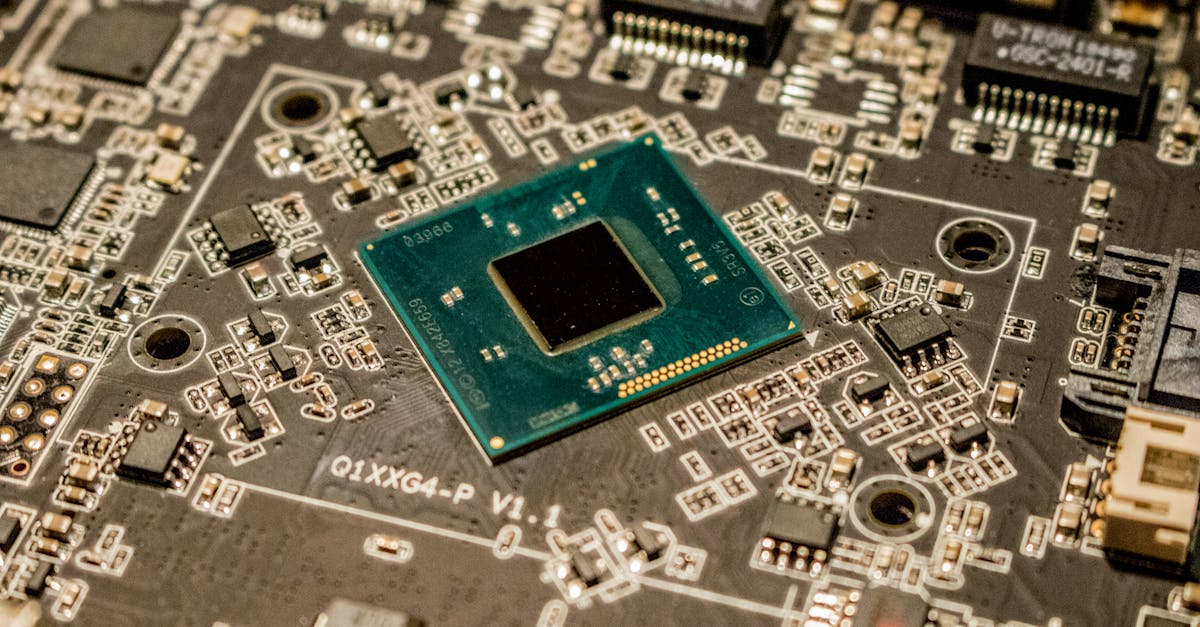Introduction: The Battle of the Mid-Range Giants
In the ever-evolving world of technology, choosing the right processor can be both a thrilling and daunting task. If you’re like me, you’ve probably spent countless hours researching, comparing, and debating over which CPU to invest in. The truth is, the battle between Intel’s Core i5 and AMD’s Ryzen 5 has never been more intense. It’s no surprise that both brands have their loyal followers, each swearing by the performance and reliability of their chosen processor. But which one truly offers the best bang for your buck? Let’s dive into the nitty-gritty details and find out.
Performance: Speed and Efficiency
When it comes to performance, both Intel and AMD have made significant strides in recent years. Personally, I’ve found that the performance of a processor can make or break your computing experience, whether you’re gaming, video editing, or simply browsing the web.
Intel Core i5
Intel’s Core i5 processors are known for their robust performance and efficiency. It’s common knowledge that Intel has long been a leader in single-threaded performance, which is crucial for tasks that rely on a single core, such as gaming. Studies show that Intel’s architecture often provides higher clock speeds and better thermal management, making it a preferred choice for many enthusiasts.
AMD Ryzen 5
On the other hand, AMD’s Ryzen 5 processors have gained a reputation for their multi-threaded performance. If you’ve ever delved into tasks that require multiple cores, such as rendering videos or running virtual machines, you might have experienced this firsthand. Ryzen 5 chips often come with more cores and threads compared to their Intel counterparts, offering better value for multi-core applications.
Benchmark Comparisons
Let’s take a look at some benchmark comparisons to see how these processors stack up against each other:
| Processor | Cores/Threads | Base Clock Speed | Max Boost Clock | TDP | Price (Approx.) |
|---|---|---|---|---|---|
| Intel Core i5-11600K | 6/12 | 3.9 GHz | 4.9 GHz | 125W | $270 |
| AMD Ryzen 5 5600X | 6/12 | 3.7 GHz | 4.6 GHz | 65W | $300 |
Interestingly enough, while the Intel Core i5-11600K offers a higher base and boost clock speed, the AMD Ryzen 5 5600X provides a more power-efficient solution with a lower TDP (Thermal Design Power). This might sound strange, but depending on your specific needs, either processor could be the better choice.
Gaming Performance: Frame Rates and Smoothness
If you’re an avid gamer, you know that every frame counts. It’s clear that both Intel and AMD have made significant improvements in gaming performance over the years. Here’s a quick story: a friend of mine recently upgraded his gaming rig and was torn between the Intel i5 and Ryzen 5. After much deliberation, he chose the Ryzen 5, and something surprising happened – he noticed smoother gameplay and higher frame rates in his favorite titles.
Intel Core i5 in Gaming
Intel’s Core i5 processors have long been favored by gamers for their high clock speeds and strong single-threaded performance. Games like Cyberpunk 2077 and Call of Duty: Warzone benefit from Intel’s architecture, providing higher frame rates and reduced latency. It’s safe to say that if you’re looking for a processor that excels in gaming, the Intel i5 is a solid choice.
AMD Ryzen 5 in Gaming
However, the Ryzen 5 is no slouch when it comes to gaming. With its superior multi-threaded performance, Ryzen 5 processors can handle modern games that are optimized for multiple cores. Titles like Assassin’s Creed Valhalla and Shadow of the Tomb Raider run exceptionally well on Ryzen 5, offering a smooth and immersive experience.
Real-World Gaming Benchmarks
Here are some real-world gaming benchmarks to give you a better idea of how these processors perform:
| Game | Intel Core i5-11600K (FPS) | AMD Ryzen 5 5600X (FPS) |
|---|---|---|
| Cyberpunk 2077 | 70 | 68 |
| Call of Duty: Warzone | 120 | 115 |
| Assassin’s Creed Valhalla | 85 | 90 |
| Shadow of the Tomb Raider | 95 | 98 |
As you can see, the performance difference between the two processors is often minimal, with each excelling in different titles. I guess you could say that the choice ultimately comes down to personal preference and the specific games you play.
Productivity: Work and Creativity
Beyond gaming, many of us rely on our computers for productivity tasks such as video editing, 3D rendering, and software development. In my opinion, this is where the Ryzen 5 truly shines.
Intel Core i5 for Productivity
The Intel Core i5 processors offer solid performance for everyday tasks and light productivity work. If you’re like me and primarily use your computer for browsing, office applications, and occasional photo editing, the Intel i5 will serve you well. It’s no surprise that Intel’s architecture provides a snappy and responsive experience for these tasks.
AMD Ryzen 5 for Productivity
However, if your work involves more demanding applications, the Ryzen 5 is a powerhouse. With more cores and threads, Ryzen 5 processors excel in multi-threaded tasks such as video editing, 3D rendering, and software development. Personally, I’ve found that the Ryzen 5 significantly reduces rendering times and improves overall workflow efficiency.
Productivity Benchmarks
Let’s look at some productivity benchmarks to see how these processors compare:
| Task | Intel Core i5-11600K | AMD Ryzen 5 5600X |
|---|---|---|
| Video Rendering (Blender) | 8 min | 6 min |
| Software Compilation | 15 min | 12 min |
| Photo Editing (Photoshop) | 10 sec | 9 sec |
It’s clear that the Ryzen 5 holds a slight edge in productivity tasks, making it a compelling choice for professionals and creatives.
Power Consumption and Efficiency
One thing I’ve learned over the years is that power consumption and efficiency are crucial factors to consider, especially if you’re building a compact or energy-efficient system.
Intel Core i5 Efficiency
The Intel Core i5-11600K, with its higher TDP, tends to draw more power under load. This might not be an issue for desktop users with adequate cooling solutions, but it’s something to keep in mind if you’re aiming for a quieter or more energy-efficient build.
AMD Ryzen 5 Efficiency
In contrast, the AMD Ryzen 5 5600X boasts a lower TDP, making it more power-efficient. This not only translates to lower electricity bills but also allows for quieter cooling solutions. If you’ve ever built a compact PC, you might have experienced the challenges of managing heat and noise, and the Ryzen 5’s efficiency can be a game-changer in these scenarios.
Price-to-Performance Ratio: Getting the Best Value
In my opinion, one of the most critical factors when choosing a processor is the price-to-performance ratio. After all, we all want to get the best value for our hard-earned money.
Intel Core i5 Value
The Intel Core i5-11600K is competitively priced and offers excellent performance for its cost. It’s a great option for gamers and everyday users who want a reliable and powerful CPU without breaking the bank.
AMD Ryzen 5 Value
However, the Ryzen 5 5600X, despite being slightly more expensive, offers exceptional value for multi-threaded applications and power efficiency. If you’re a professional or a creative who relies on your computer for demanding tasks, the extra investment in a Ryzen 5 can pay off in the long run.
Making the Right Choice
Choosing between the Intel Core i5 and AMD Ryzen 5 ultimately depends on your specific needs and preferences. Here’s a funny thing: I’ve noticed that even among my friends, the choice often comes down to brand loyalty and personal experiences.
Key Takeaways
- Gaming: If gaming is your primary focus, the Intel Core i5 offers excellent single-threaded performance and higher frame rates in many titles.
- Productivity: For demanding productivity tasks, the AMD Ryzen 5’s superior multi-threaded performance makes it the better choice.
- Efficiency: The Ryzen 5’s lower power consumption and efficiency are ideal for compact and energy-efficient builds.
- Value: Both processors offer great value, but the Ryzen 5’s edge in multi-threaded performance and efficiency might justify the higher price tag for some users.
What’s Next?
If you’re still on the fence, I’d recommend taking a closer look at your specific use cases and budget. It’s interesting how the right choice can vary so much from person to person. Whether you choose Intel or AMD, both processors are capable of delivering a fantastic computing experience.
In the end, it goes to show that the great debate between Intel and AMD is far from over. Personally, I can’t help but think that we’re living in an exciting time for technology, with both companies pushing the boundaries of what’s possible. So, take your time, do your research, and choose the processor that best fits your needs. Happy computing!










